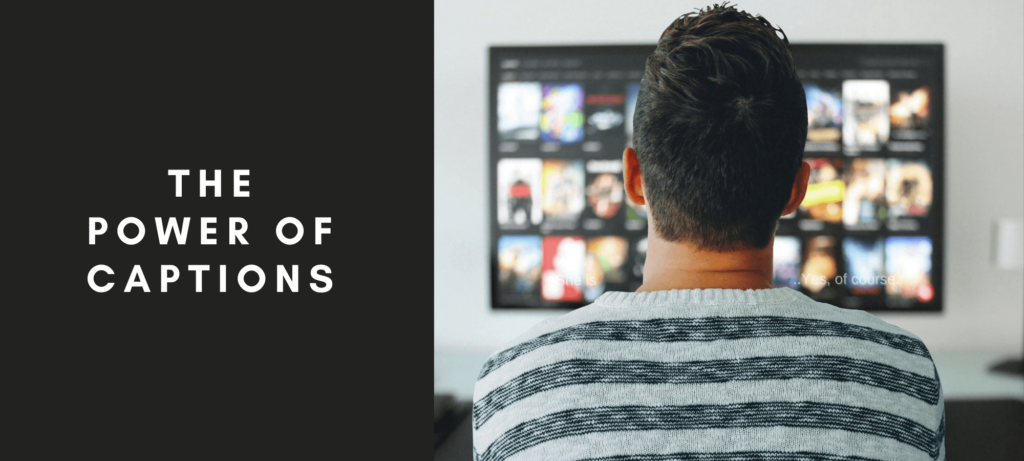Hearing loss can impact so many parts of your life without you realizing it—but not always for the worse. Growing up with a mother who had a moderately-severe hearing loss which eventually descended into a profound hearing loss, I often fail to realize how many behaviors it affected in myself and my other family members. Even something a normal-hearing family would never think twice about, such as how we watch television, was modified.
In our house, all of our TVs were set to display captions, even when my mom wasn’t watching with us (as turning the captions on and off frequently was more work than it was worth). Some people who have not been around people with hearing loss all their lives tend to find captions annoying. Many of my friends and roommates have commented that captions can get in the way or distract them from the acting of the program. However, once I explained to them why I had grown up using them, and why I personally like them regardless of the fact that I have normal hearing, they gave them a chance and started seeing the value in captions too.
Although I don’t have any hearing loss myself, I do have Attention Deficit Hyperactivity Disorder (ADHD) and severely lack in auditory processing skills. I am not sure if these are related or not, but both of these issues call for a different approach to TV-watching. ADHD is being increasingly studied, but I can speak from experience here: captions are extremely helpful for those who are prone to getting distracted. Captions help me follow the plot of the movie or episode better, as reading the dialogue keeps my attention on the screen. In regards to my faulty auditory processing skills, captions help me fill in missed words that I can’t make out. I can better comprehend visually and kinesthetically (active learning) than audibly, so I pick up dialogue much better when reading rather than listening.
Reading captions my whole life has also increased my language comprehension. From a young age, I was consistently practicing connecting what people say with body language. Not only did I learn a good deal of new vocabulary, but my reading comprehension was testing years ahead of where I was supposed to be in school. Reading books even became easier as a result—I could imagine the story in my head like a movie when reading a novel.
Excelling at reading in school encouraged me to want to do it more often. Overachieving at something and having fun doing it was the perfect recipe—voila, a love of reading was born and from it, an interest in writing sprouted alongside it. I scored off the charts in all of my reading and writing classes in grade school, was involved in the school paper in high school, and then majored in English (creative writing track) in college. From there, I went on to work at the library to help foster that love of reading in others.
There are so many accommodations for people with hearing loss, the challenge does not have to be understanding the people and the media around you. The tricky part is knowing what your best options for adding captions are. And my mom, Dr. Solat (yes, she makes me call her that) *, can help you with deciding among those options. View Dr. Solat’s recommendations for speech to text applications.
What may seem like such a trivial detail to some people has had the most profound impact on the direction of my life. What’s more is that I’ve realized hearing loss isn’t always an obstacle or a disability for my mom or our family. While our family is certainly familiar with the drawbacks of hearing loss, our lives are strengthened in other ways. Dr. Solat has built her business on the foundation of her own experiences, and she wants others to understand the impact better hearing can have on their lives. She is a prime example of how to empower yourself by your different abilities, and it is an example we should all look to follow.
Stay strong,
Jacki
*Mandi (Jacki’s mom Dr. Solat): No, I don’t make her call me that. Haha!




